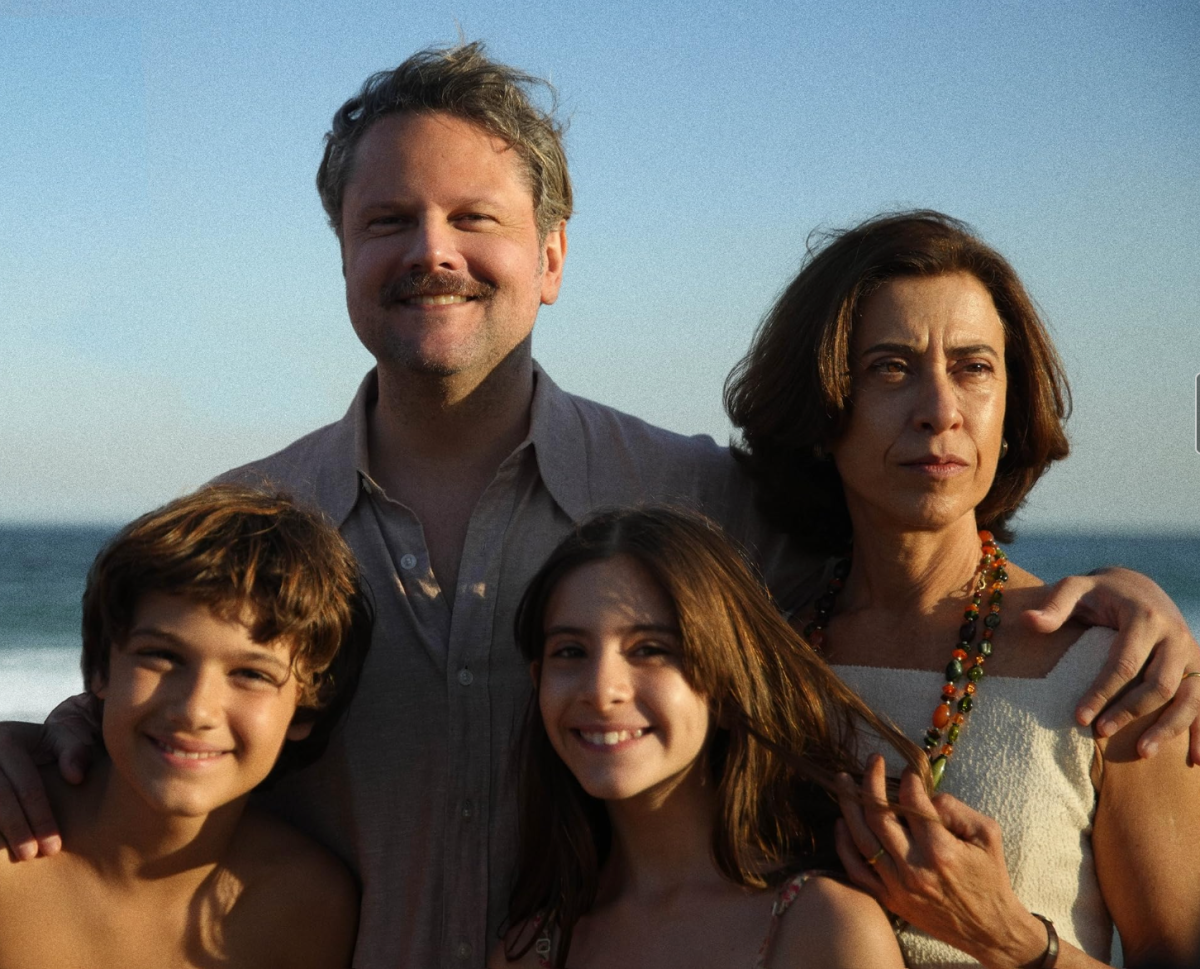
“I’m Still Here” is a Portuguese-language film that tells the story of a tight-knit family as they attempt to survive under the rule of Brazil’s 1970s military dictatorship. The family lives in an idyllic house near a beach in Rio de Janeiro. However, this picture-perfect lifestyle comes to an abrupt halt after the patriarch, Rubens Paiva (Selton Mello), is taken by the military and disappears. The film follows Eunice Paiva (Fernanda Torres) and her five children as she tries to continue caring for her family while searching for the truth behind her husband’s arrest and disappearance. Adapted from a semi-biographical book of the same name by Marcelo Rubens Paiva, the only son of Eunice and Rubens Paiva, the film offers a deeply personal narrative.
First and foremost, this movie profoundly changed me. I am not sure exactly how to articulate what I learned or what exactly was altered within me, but I do know I walked out of the theater a different person than I entered. The movie succeeds on almost all fronts, which I will break down, but truly excels with its emotional impact.
“I’m Still Here” is absolutely stunning, both visually and emotionally. The cinematography is breathtaking, with every shot feeling intentional and immersive. One of my favorite aspects was the film’s grainy texture. It created this distinctly nostalgic and almost documentary-like feel, which made every plot point all the more real. Clips of the family taken by the oldest daughter, Vera (Valentina Herszage), appeared throughout the film, further enhancing its immersive quality. As the years progressed within the film, the cinematography became clearer, losing its grainy texture, paralleling the evolution of camera technology over time.
The color grading was another standout. Cool-toned hues washed the scenes involving the military dictatorship, allowing the oppressive atmosphere to feel even heavier and sending a chill down my spine. On the other hand, moments with the family were bathed in warm, golden light, reinforcing the love and connection between them. Before watching this film, I had never seen color grading used to so thoroughly enhance and reinforce a story’s themes. It is such a simple yet effective tool that adds significantly to the film’s emotional weight.
The acting, too, was — simply put — incredible. Torres gave such a raw and heartfelt performance as Eunice Paiva. Her portrayal of a mother trying to keep her family together while seeking justice for her husband was both powerful and deeply moving.
It is often easy for historical films to fall into the trap of feeling like Oscar bait, but “I’m Still Here” avoided that stereotype masterfully. Rather than focus too much on the violence of the military regime, director Walter Salles chose to center the relationships between family members and the resilience of a mother fighting for the truth, leading to a more authentic story. It was precisely this focus on family that made “I’m Still Here” so impactful for me. The members of the Paiva family weren’t idealized or untouchable figures of resistance. They were normal people trying to cope with the disappearance of their father and holding onto hope while struggling to fully understand the reality of their situation.
Although we don’t live under a military dictatorship, watching this film in today’s political climate makes it feel all too relevant. Currently, we are seeing families being torn apart not by soldiers in uniforms but by policies and systems that aim to dehumanize and separate. The film isn’t just about a historical moment; it’s a reminder that stories like this are still happening all around us, just in different forms.
This movie truly deserves every accolade it has received. It is one of the best films of the past year, if not one of the best I have ever seen. The way it seamlessly blends historical tragedy with deeply personal and emotional storytelling is masterful. It left me shaken, reflective and, in a not insignificant way, transformed. “I’m Still Here” is a film to be experienced rather than merely watched. I absolutely recommend this movie to everyone, not just for the brilliance in its storytelling and cinematography but for the lasting emotional impact it leaves on the soul.




















